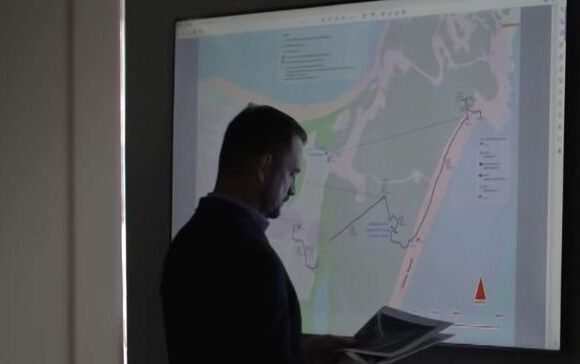Cyber security is arguably the fastest growing industry on the planet. Fighting back against scammers and fraudsters with an online presence is requiring a sustained and concerted effort from experts within the government and private sector.
Universities like the University of Western Sydney are embracing this employment frontier by introducing and fast-tracking new courses to help educate and qualify the next generation of students for a career in cybersecurity. IFW Global Director Dr Alana Maurushat, Professor in Cyber Security and Behaviour at the Western Sydney University, is a key driver when it comes to helping the industry find the right people to tackle the incredibly complex area of crime.
Crime gangs are using highly sophisticated techniques to carry out scams and they are evolving almost daily. Given their global reach they are using people from a variety of backgrounds to carry out their crimes. So, one the key challenges facing the cybersecurity industry is the lack of diversity. For example, there is a huge demand for more females in order to help bring a broader approach.
“Cybersecurity problems are trying to be solved by middle aged men, which is why we still have the problems that we do, and they are almost all from computer science or police backgrounds,” Dr Maurushat explains.
“In order to overcome the cybersecurity problems that we are seeing, we require different kinds of thinking and you need that diversity of thinking. So that thinking can come from different socio-economic backgrounds, it can come from different disciplines; that one is really important because cybersecurity is not a computer science problem.
“We need a diversity of cultures, and simply, we need more women to help bring a different and broad perspective to tackling cybercrime.”
Read more on why cybersecurity needs more women from Forbes Magazine
“My students are doing voluntary placements in the industry right now and the girls are in the most demand. People are looking for people with a basic understanding of the technology and those who can communicate well. There is strong demand for people who can take a wholistic picture of the situation.”
Dr Maurushat has worked internationally in the fields of intellectual property, information technology law and cybercrime/cybersecurity. She was previously a Senior Lecturer in the Faculty of Law and Co-Academic Director of the Cyberspace Law and Policy Community with the University of New South Wales.
Learn more from Dr Maurushat in IFW Global’s Emagazine about Payment Diversion Fraud
“I used to teach cybercrime law, and for every year that I teach, about five students become obsessed with it (cybersecurity),” says Dr Maurushat.
“There are so many aspects to fighting cybercrime and so many challenges that it feels like it’s a whole new world and one where every day can present something entirely different because it’s evolving so quickly.”







 Philippines National Police
Philippines National Police  Californian Association of Licensed Investigators
Californian Association of Licensed Investigators  NSW Police Force
NSW Police Force  Philippine Securities and Exchange Commission
Philippine Securities and Exchange Commission 